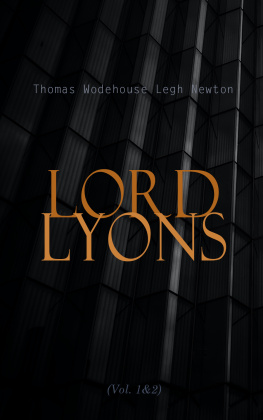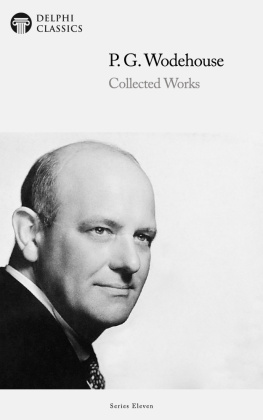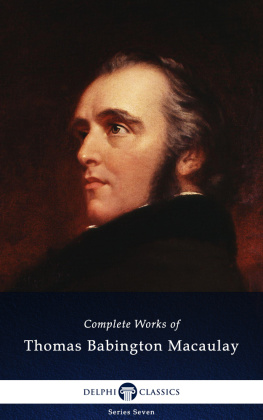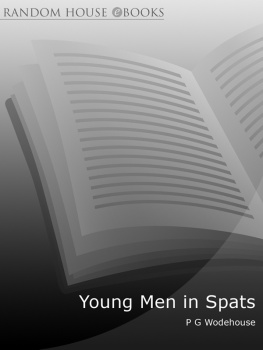CONTENTS OF VOL. II
The Third Republic
1871-1873
Thiers as Chief of the ExecutiveNegotiations respecting a new Anglo-French Commercial TreatyReturn of the PrincesEmbarrassment caused by the Comte de ChambordQuestion of voting in the House of LordsThiers elected PresidentState of parties in FranceIrritation in Germany against ThiersDiplomatic incident at ConstantinopleSignature of Anglo-French Commercial TreatyDeath of the Emperor NapoleonLord Odo Russell on Bismarck's policyFall of ThiersBismarck and Arnim
Marshal MacMahon's Presidency
1873-1875
MacMahon as President of the RepublicFranco-German relationsBismarck's confidences to Lord Odo RussellPolitical confusion in FranceThe war scare of 1875Rumoured intention of Khedive to sell his Suez Canal sharesLord Odo Russell on Bismarck's Foreign PolicyPurchase of Khedive's shares by H.M. Government
The Eastern Question
1876-1878
The Powers and Turkey: England and the Andrassy NoteGambetta on French PoliticsSimplicity of Marshal MacMahonPolitical consequences of French military re-organisationStruggle between the Marshal and ParliamentThe Constantinople Conference: Determination of Lord Derby to do nothingIntrigues of the Duc DcazesConstitutional crisis in FranceDefeat of Marshal MacMahon: new Radical Ministry formed under Dufaure with Waddington as Foreign MinisterTreaty of San Stefano; nervousness of French GovernmentDetermination of H.M. Government to secure a ConferenceInvitation to Lord Lyons to be the British representative at BerlinResignation of Lord Derby: appointment of Lord SalisburyLord Salisbury's circular of April 1st, 1878Inquiry of Lord Salisbury respecting French desire for TunisThe Anglo-Turkish ConventionThe Congress of BerlinReception in France of the Anglo-Turkish ConventionWaddington and TunisSir H. Layard on the Treaty of Berlin
M. Grvy's Presidency
1878-1879
Paris Exhibition of 1878: desire of Queen Victoria to visit it incognitoTunisResignation of MacMahon: Election of GrvyWaddington Prime Minister: his difficultiesAnglo-French policy in EgyptQuestion of deposing the Khedive IsmailDifferences between British and French Governments with regard to EgyptDeposition of the Khedive by the SultanDeath of the Prince Imperial: effect in FranceProposed visit of Gambetta to England: his bias in favour of English ConservativesResignation of Waddington: Freycinet Prime MinisterCoolness between France and Russia
The Revival of France
1880-1881
Change of Government in England and reversal of Foreign PolicyThe French Embassy in London: Freycinet's model AmbassadorPersonal characteristics of Lord Lyons: On ne lui connait pas de viceThe work at the Paris EmbassyThe Eastern Question: Mr. Goschen at ConstantinopleThe Dulcigno Demonstration and the difficulties of the European ConcertProposal to seize SmyrnaOpportune surrender of the SultanH.M. Government and the Pope: Mission of Mr. Errington, M.P.Gambetta on the European situationFrench expedition to TunisIneffectual objections of H.M. GovernmentEstablishment of French Protectorate over TunisIrritation in England and ItalyDistinction drawn between Tunis and TripoliAttempt to negotiate a new Anglo-French Commercial Treaty: Question of Retaliation
Arabi's Rebellion
1881-1882
Egypt: the coup d'tat of the Colonels: joint Anglo-French actionGambetta as Prime MinisterHis desire to remain on good terms with EnglandEgypt: the Dual NoteGambetta in favour of a more resolute joint policyFall of Gambetta after two months of officeMinistry formed by FreycinetFrench vacillation with regard to EgyptDecision of H.M. Government to employ forceBombardment of AlexandriaDecision of French Government to take no part in expeditionFall of FreycinetInvitation to Italy to join in expedition declinedEffect produced in France by British military success in EgyptFrench endeavour to re-establish the Control in EgyptMadagascar and Tonquin
Anglophobia
1883-1885
Death of GambettaGeneral discontent in FranceChange of Government: Jules Ferry Prime MinisterWaddington appointed Ambassador in LondonInsult to King of Spain in ParisGrowth of French ill-will towards English influence in EgyptBaron de Billing and General GordonEstablishment of French Protectorate over TonquinEgyptian Conference in LondonRenewed request to Lord Lyons to vote in House of LordsAnti-English combination with regard to EgyptJules Ferry on the necessity of delivering a coup foudroyant upon ChinaFrench reverse in Tonquin: resignation of Jules FerryNew Government under FreycinetBismarck and the persons whom he dislikedFuneral of Victor HugoReturn of Lord Salisbury to the Foreign OfficeAnglophobia in Paris: scurrilities of Rochefort
The Last Year's Work
1886-1887
Lord Rosebery at the Foreign OfficeHis surprise at ill-feeling shown by French GovernmentProceedings of General BoulangerPrinces' Exclusion BillBoulanger at the Review of July 14thCauses of his popularityGeneral Election in England: Lord Salisbury Prime MinisterThe Foreign Office offered to Lord LyonsEgyptian questions raised by French GovernmentApprehension in France of a German attackEmbarrassment caused by BoulangerUnofficial attempt on behalf of French Government to establish better relations with EnglandApplication by Lord Lyons to be permitted to resignPressed by Lord Salisbury to remain until end of the yearDesire of French Government to get rid of BoulangerLord Salisbury's complaints as to unfriendly action of the French Government in various parts of the worldResignation of Lord LyonsCreated an EarlHis death
| Lord Lyons in Private Life. By Mrs. Wilfrid Ward |
| Index |
CHAPTER X
THE THIRD REPUBLIC
(1871-1873)
Strictly speaking, the existence of the National Assembly which had been summoned to ratify the Preliminaries of Peace, had now come to an end, but under prevailing circumstances, it was more convenient to ignore Constitutional technicalities, and the Government proceeded to carry on the business of the country on the basis of a Republic. Thiers had been elected Chief of the Executive, and it was astonishing how rapidly his liking for a Republic increased since he had become the head of one. It was now part of his task to check the too reactionary tendencies of the Assembly and to preserve that form of government which was supposed to divide Frenchmen the least. The feeling against the Government of National Defence was as strong as ever, and the elections of some of the Orleans princes gave rise to inconvenient demonstrations on the part of their political supporters, who pressed for the repeal of the law disqualifying that family. Thiers realized plainly enough that the revival of this demand was premature, and would only add to the general confusion, and had therefore induced the princes to absent themselves from Bordeaux, but the question could no longer be avoided.











